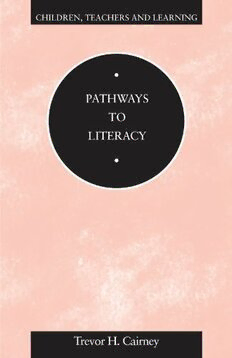
Pathways to Literacy (Children, Teachers and Learning) PDF
225 Pages·1995·7.067 MB·English
Most books are stored in the elastic cloud where traffic is expensive. For this reason, we have a limit on daily download.
Preview Pathways to Literacy (Children, Teachers and Learning)
Description:
This text recognizes that there is no simple way to develop literacy. It begins with the central premise that literacy is not simply a cognitive process, but a set of social practices used in socio-cultural contexts, and argues that literacy learners come to school with unique social histories that need to be recognised in the programmes devised to facilitate learning. Cairney claims that literacy is not a unitary social practice and suggests that there are many forms of literacy, each with specific purposes and contexts in which they are used. The author provides a look at the many practical classroom strategies and practices that are necessary to recognize multiple pathways to literacy.
See more
The list of books you might like
Most books are stored in the elastic cloud where traffic is expensive. For this reason, we have a limit on daily download.
